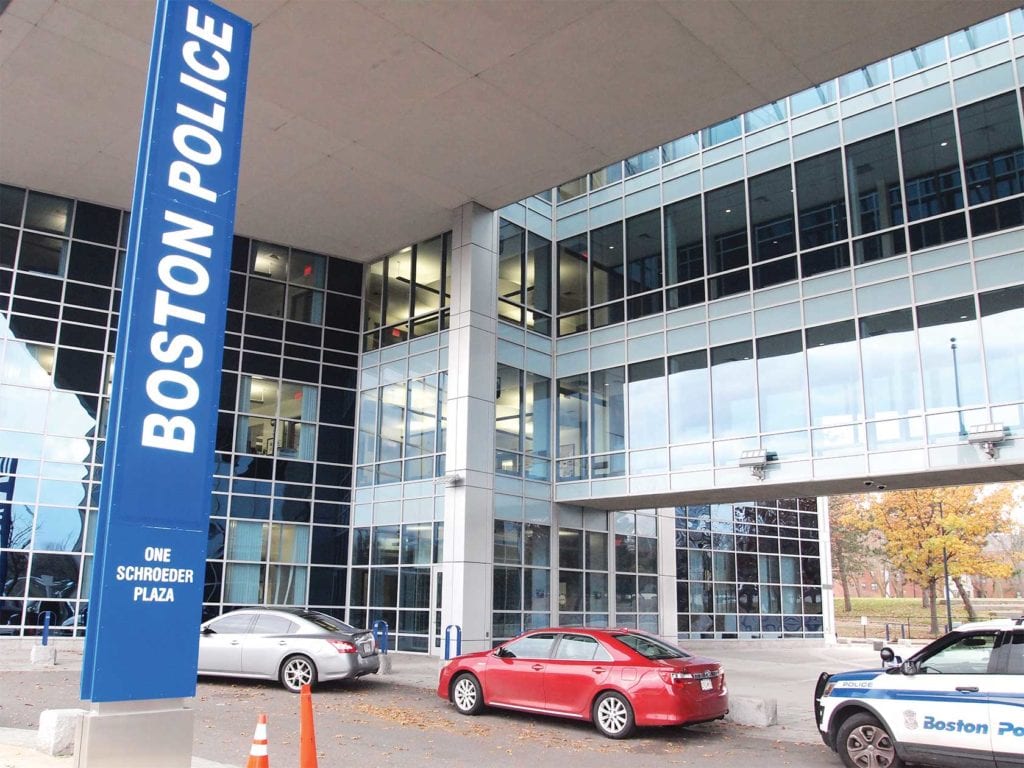
Justices of the U.S. First Circuit Court of Appeals on Monday ruled in favor of a Salvadoran immigrant’s petition to review a deportation order, finding in favor of his argument that a Boston Police Department gang database determination falsely identified him as a member of the MS-13 gang.
With three of the seven justices dissenting, the court found that an immigration judge who denied Christian Joshue Diaz Ortiz’s petition relied on the BPD’s controversial database in his judgement.
“Flaws in that database, including its reliance on an erratic point system built on unsubstantiated inferences, compel us to conclude that the credibility judgment — and, in turn, the rejection of Diaz Ortiz’s request for relief — is not supported by substantial evidence,” the justices ruled.
The ruling calls into question the validity of the gang database, said City Councilor Ricardo Arroyo.
“Essentially what this ruling says is that people on the gang database can’t reliably be said to be in a gang,” he said. “The justices have effectively called into question everybody who’s in the database. We have to address that. The cleanest way to do that would be to get rid of it.”
Arroyo, other councilors and criminal justice activists have long called for the abolition of the database, which lists as many as 160 active gangs in Boston.
“We need to end the gang database,” said Armani White, a Roxbury activist who works with the group Right to the City Vote. “We need to think about how we provide resources and fund initiatives that prevent crime, not keeping databases that are about monitoring Black men.”
Diaz Ortiz, who says he fled El Salvador in 2015 after being targeted by MS-13 members there, has maintained he is not a member of the gang and was targeted by gang members because he is an evangelical Christian. He was arrested in 2018 with two others by agents of The Department of Homeland Security’s Investigations and agents of Enforcement and Removal Operations who were targeting MS-13 members.
Diaz Ortiz was then detained by Immigration and Customs Enforcement. He filed for asylum in the U.S. and withholding of his order for removal, basing his request on persecution for his evangelical Christian religion.
He filed an affidavit stating that MS-13 members in El Salvador had threatened his life, attacked him with a baseball bat and pressured him to join the gang.
But during a hearing with the immigration judge, the government introduced a package of BPD Gang Assessment Database documents, including a memorandum by a Department of Homeland Security Special Agent describing Diaz Ortiz as a “verified” MS-13 member. The memorandum cited law enforcement field reports from the gang database, which federal officials are able to access through the Boston Regional Intelligence Center, a federally-funded office through which BPD shares information with other law enforcement agencies.
The database has sparked controversy because of its system for identifying people as gang members, which includes criteria such as being seen in the presence of or speaking to people police have identified as gang members and being in areas frequented by alleged gang members.
Diaz Ortiz attended East Boston High School, a school BPD officials say MS-13 members attend, and therefore, was in close proximity to alleged gang members.
He was also observed by BPD officers in parks in East Boston that are frequented by gang members. But critics of the gang database note that parks, high schools and other places of public accommodation are frequented by people who are not gang members as well.
The appeals court justices did not find the material in the BPD gang packet credible.
“The record clearly shows that the [immigration judge] and the [Bureau of Immigration Appeals] credited the gang package’s ‘verification’ of Diaz Ortiz as a gang member in finding him not credible. However, the BRIC database does not contain ‘reasonable, substantial, and probative evidence’ of gang membership or association, and the government provided no other evidence to substantiate the inferences and conclusions drawn from the police reports via the BRIC point system.”







